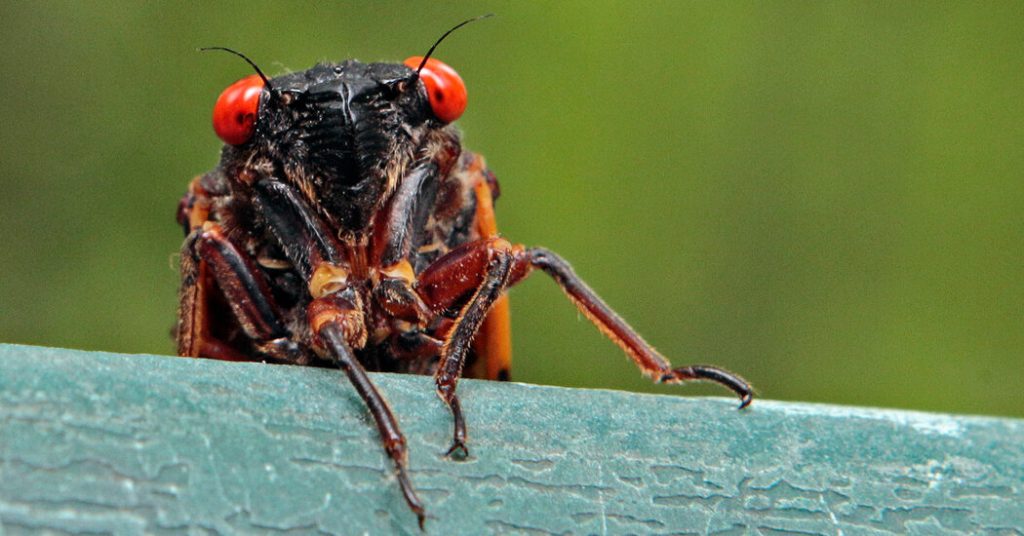In a rare event, a trillion cicadas from two different broods, Brood XIX and Brood XIII, are set to emerge in the Midwest and Southeast regions of the United States at the end of April. This dual emergence, the first since 1803, will occur in a roughly 16-state area, with forested areas likely to see higher numbers of cicadas than agricultural regions. Each cicada is just over an inch long, and if placed end to end, one trillion of them would cover a distance of 15,782,828 miles, reaching to the moon and back 33 times.
The first cicadas are expected to start emerging in late April, once the soil reaches 64 degrees Fahrenheit about six inches deep, following a good soaking rain. Male cicadas will start buzzing to attract mates a few days after they emerge and molt, creating a chorus of noise that can be louder than a plane. The initial wave of cicadas will emerge in states like Louisiana, Arkansas, Alabama, Mississippi, and Georgia before spreading to areas in the Midwest like Missouri, Illinois, Indiana, and Iowa. The dual emergence is expected to last about six weeks.
Cicadas are not dangerous to humans, as they do not bite or sting and do not carry diseases. However, they can end up on sidewalks and roads, where they may be squished by people or vehicles. In urban areas, their bodies may need to be removed, but they can also be used as fertilizer for plants in gardens and natural areas. While cicadas are beneficial to the environment, particularly for trees, they can cause branches to break and leaves to turn brown. When they die, their bodies provide nutrients that trees need.
If you have delicate plants you want to protect from cicadas, special netting can be used. However, the best advice for dealing with cicadas is to let them be, as they are a natural part of the forest ecosystem. Attempting to kill them with insecticides may have negative consequences and lead to unintended consequences. Cicadas play a crucial role in aerating the soil and nourishing tree roots, and their presence benefits the environment as a whole. It is important to coexist with these insects rather than trying to eliminate them.


